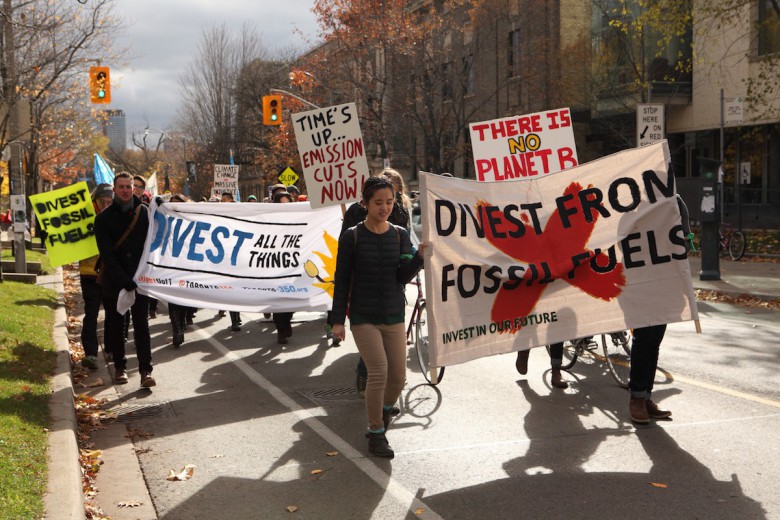For the last decade, the left has grappled with grim capitalist realism; our imagination has become so limited that it is easier, as they say, to imagine the end of the world than the end of capitalism. A Planet to Win serves as a very useful rebuttal to capitalist realism in two respects: first, by sketching out muscular proposals that can scale to meet the enormous challenges our society faces and, second, by presenting a compelling vision of a future that would be good to live in and is worth fighting for.
The four authors bring their varied analyses to this text: Kate Aronoff’s analysis of the fossil fuel industry, Alyssa Battistoni’s environmental politics, Daniel Aldana Cohen’s work on housing and carbon footprints, and Thea Riofrancos’ background assessing Latin American resource extraction all figure prominently. A Planet to Win is one of an ongoing series of texts published in collaboration between socialist magazine Jacobin and publishing house Verso, for a largely American audience.
The socialist critique of capitalism is what animates this text, so it is useful to define this specific assessment of capitalism. A socialist appreciates that capitalism has created an immense, unparalleled productive capacity but contends that the forces animating this productive capacity are held completely in thrall to the production of profit. This misdirection of productive capacity leads to a range of irrational and damaging social, economic, and ecological consequences. The solution entails seizing this productive capacity and rationally and democratically reallocating it to socially and ecologically beneficial uses.
The four authors bring their varied analyses to this text: Kate Aronoff’s analysis of the fossil fuel industry, Alyssa Battistoni’s environmental politics, Daniel Aldana Cohen’s work on housing and carbon footprints, and Thea Riofrancos’ background assessing Latin American resource extraction all figure prominently.
Recent debates about the Green New Deal have resulted in a split between philosophical camps. On the one hand, advocates for degrowth contend that modern consumption is unsustainable and advocate for a reduced quality of life as a necessary means of addressing the ecological crisis. On the other hand, some futurist and accelerationist thinkers have suggested that our salvation lies in technological fixes to social and environmental issues: asteroid mining, new nuclear tech, automation, and geoengineering.
A Planet to Win sidesteps the conflict, playing to some of the strengths of both proposals by remaining faithful to the socialist critique that it is the profit motive and the inefficient allocation of goods and services through the market that is the source of our woes. Our productive capacities are an immense asset, but they have been subordinated, until now, to the wrong motive.
The book does not call for a utopian adoption of yet-to-be-invented technologies to fix things, but contends that we can build using the technology we have now. It also proposes that our lives could be made better by swapping wasteful private consumption with the buildout of low-carbon public goods, providing public services and infrastructure that increase sociability and recreation. While it will take work and political will to achieve, the authors argue that we can both address people’s real needs and decarbonize.
First among A Planet to Win’s proposals is a frontal assault on the fossil fuel industry’s power: keeping fossil fuels in the ground, banning further extraction, and phasing out subsidies. The authors dismiss technocratic silver bullets like a carbon tax. Keeping fossil fuels in the ground would leave the fossil fuel industry massively devalued, which presents a perfect opportunity to purchase controlling shares in oil and gas companies and wind down production through managed decline, allowing workers to be retrained for cleaner energy jobs.
A Planet to Win envisions a jobs guarantee and a shorter work week alongside an organized, militant labour movement that is willing to use strikes as a primary weapon to win growing demands. Prioritizing and paying for the care work of nurses, teachers, and aides — all of which are already low-carbon jobs — is first among the proposals. The buildout of physical infrastructure entails building retrofits, millions of units of no-carbon public housing, a continent-spanning smart grid, and vast networks of train lines.
The book does not call for a utopian adoption of yet-to-be-invented technologies to fix things, but contends that we can build using the technology we have now.
In each of these cases, what’s being proposed is a sensible repurposing of capacity for need rather than profit. Buildings haven’t been built efficiently because inefficient building materials are cheaper, and utilities providers much prefer a captive market of inefficient buildings constantly in need of their natural gas or electricity. Housing itself is a speculative asset that prices people away from where they need to be — consider how important amenities like a subway stop or school can increase nearby property values, spiking neighbourhood rents. The profit motive, applied to electricity markets, leads to price gouging and blackouts, in addition to pollution and waste. Combatting these profit-driven inefficiencies, a continental renewables grid would take advantage of any region’s renewable energy capacity by transmitting and storing it where it’s needed most, avoiding the current situation of constantly generating excess energy in order to meet peaks in demand at any moment.
And an electrified rail network and a free, comprehensive transit system would replace the existing pollution-generating highway system, itself a giant subsidy to automobile manufacturers. Repurposing these resources to transport people efficiently, rather than subsidize suburban sprawl and traffic jams, is a key component of decarbonization and would help stop the Uberization of transportation – and the precarious work and lack of regulations that it ushers in – as well. The authors’ vision for public transportation is to provide a service that is so free, fast, reliable, and comprehensive that people will support major restrictions on private automobiles.
What of the need to mine more minerals from the Global South for renewables, and the associated risk of solar-powered capitalist imperialism? Alongside reductions in energy use domestically, A Planet to Win proposes a restructuring of global trade rules: new labour and environmental standards in trade policy, alongside the sharing of technological innovations instead of patent-hoarding. This left vision of international trade would put in place incentives and priorities that would reverse the race-to-the-bottom dynamic so characteristic of international trade. Instead, improving labour and environmental standards everywhere would form the basis for procurement.
In each of these cases, what’s being proposed is a sensible repurposing of capacity for need rather than profit.
A Planet to Win includes a limited discussion of decolonization, specifically calling for a new program of Indigenous sovereignty and control over Indigenous lands, and mentioning an embrace of the Red Nation’s Red Deal and of multispecies caretaking, ecosystem restoration, and rewilding. In broad strokes this is an admirable approach, but it’s lacking in detail – Latin American resource extraction communities get substantially more coverage in the book than local struggles for Indigenous sovereignty.
Canadian readers might be interested to take these broad strokes and consider what they would mean in the context of the particularities of treaties, unceded territories, and environmental racism here at home, specifically amid calls for returning land to Indigenous nations. Is a national, multi-region social program, economic plan, and infrastructure buildout with enough substantive buy-in even possible? Aspirational policy proposals have been lacklustre in Canada compared to campaigns occurring in Britain and the United States. (Roosevelt’s New Deal, ironically, had little-to-no corollary in Canada. Tory Prime Minister R.B. Bennett sought the arrest of the On-to-Ottawa Trekkers in 1935 before losing the federal election.) Given Canada’s farcical nation-building projects lately, it’s somewhat difficult to imagine without a substantial political shakeup.







